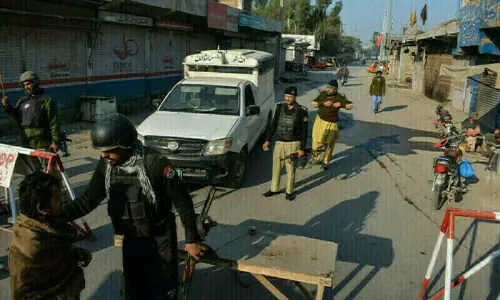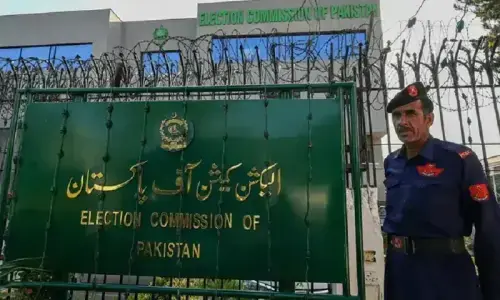WASHINGTON President Barack Obama vowed to make BP pay for its “recklessness” in causing the Gulf of Mexico oil spill as he used an Oval Office address Tuesday to call for a new “national mission” to wean America off fossil fuels.
But eight weeks into the disaster, Obama had no hard answers on how to plug the gusher, estimated Tuesday to be up to a staggering 60,000 barrels a day, or how to push his clean energy revolution through a reluctant Congress.
In his debut Oval Office address, the president also promised a long-term effort to help the battered Gulf coast, while defending his six-month moratorium on deepwater drilling as imperative for the safety of the region.
Flanked by the Stars and Stripes and a second flag bearing the presidential seal, Obamas 18-minute speech followed a three-state tour of the disaster zone and sought to stifle growing criticism of his leadership over the crisis.
“The millions of gallons of oil that have spilled into the Gulf of Mexico are more like an epidemic, one that we will be fighting for months and even years,” the president warned in a speech carried live on all the main US television networks.
Obama said he would order BP chairman Carl-Henric Svanberg at a White House meeting at 1015 am (1415 GMT) on Wednesday to accept the creation of an independently controlled escrow account to compensate victims of the spill.
“Tomorrow, I will meet with the chairman of BP and inform him that he is to set aside whatever resources are required to compensate the workers and business owners who have been harmed as a result of his companys recklessness,” he said.
In a spare two-sentence reaction to the presidents speech, BP said “We share the presidents goal of shutting off the well as quickly as possible, cleaning up the oil and mitigating the impact on the people and environment of the Gulf Coast.
“We look forward to meeting with President Obama tomorrow for a constructive discussion about how to best achieve these mutual goals.” Obama, pointing his finger for emphasis and seeking to project authority and decisiveness, said the oil disaster showed the need for a new generation energy policy, based on renewable sources of power.
“We cannot consign our children to this future. The tragedy unfolding on our coast is the most painful and powerful reminder yet that the time to embrace a clean energy future is now.
“Now is the moment for this generation to embark on a national mission to unleash American innovation and seize control of our own destiny.” The House of Representatives has already passed an energy reform bill, but the legislation faces stiff opposition in the Senate following the collapse of a bipartisan effort to pilot it through the chamber in the runup to crucial mid-term elections in November.
“President Obama should not exploit this crisis to impose a job-killing national energy tax on struggling families and small businesses,” the Republican leader in the House, John Boehner, said before the president spoke.
Obama dismissed the economic argument by saying the consequences of US inaction were starkly clear as countries like China leap ahead in investment in clean energy jobs that could be up for grabs for Americans.
“As we recover from this recession, the transition to clean energy has the potential to grow our economy and create millions of good, middle-class jobs, but only if we accelerate that transition.” Obama spoke in the symbolic surroundings of the Oval Office, a venue reserved for the most somber moments in national life after his administration sharply boosted estimates of how much oil is pouring into the Gulf.
A new assessment from US experts said between 35,000 and 60,000 barrels per day was now believed to be spewing out of the ruptured well every day, with the coastline from Louisiana to Florida already under threat from the huge slick.
If the upper estimate is true it would mean almost the same amount of crude -- more than ten million gallons -- that spilled from the Exxon Valdez tanker off the coast of Alaska in 1989 is gushing into the Gulf every four days.
Earlier in a stunning admission borne out by BPs troubled efforts to contain the spill, ExxonMobil chief executive Rex Tillerson acknowledged to US lawmakers that oil companies are hamstrung once a major spill happens.
“When these things happen, we are not well equipped to handle them,” he admitted as lawmakers grilled top executives from BP and four of its biggest global rivals. - AFP
































